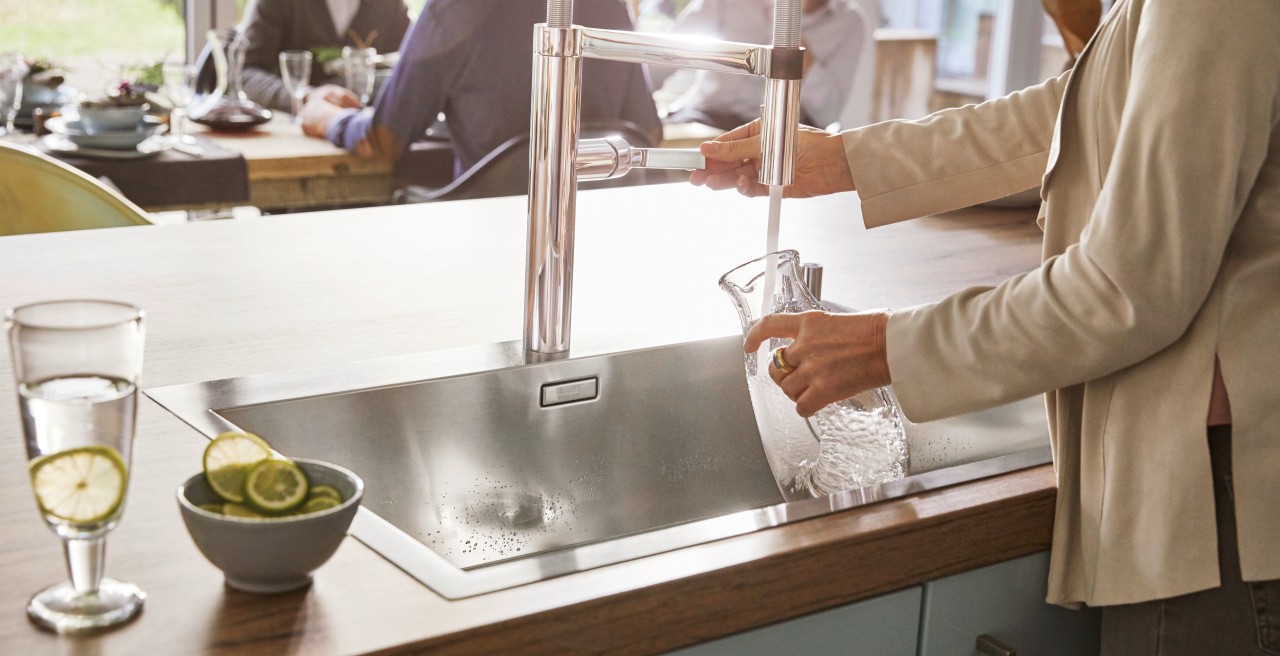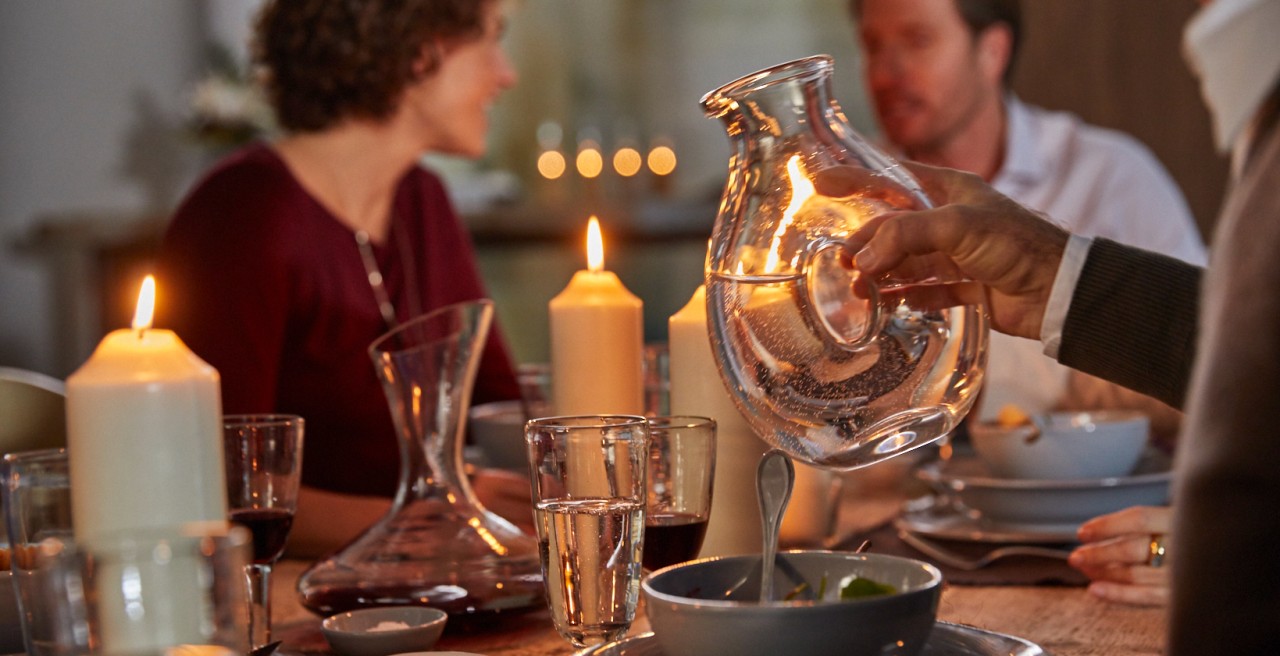Health starts in the kitchen
Why is water so important?
Drinking enough water every day is a basic prerequisite for lasting health. As we get older we often find ourselves drinking less water, as we don’t get thirsty as much or simply forget to do it. However, water is vital for life, so young people should drink 2 to 3 litres every day, and older people at least 1.5 litres. After all, over half of the human body is made up of water.
Vital: drinking water
The body mainly obtains its elixir of life – water – through drinking. Its liquid intake also comes from solid food and metabolic water. For men, water makes up 50 per cent of total body weight. For women the proportion is somewhat higher, at 60 per cent. Water takes on a variety of important functions in the body, e.g. as a means of transportation and dissolver of nutrients, as a component of cells or as a reactant in biochemical processes, to name but a few. The body is constantly excreting liquid via the kidneys, intestine, skin and respiration, which is why taking in lots of liquid across the whole day is so important. If it has insufficient liquid, the body regulates this need via the sensation of thirst.
How water requirements change over time
A healthy adult will experience thirst if his or her body has lost over 0.5 per cent of its weight in the form of water. However, this does not remain constant as we grow older. The key changes that come about with ageing and affect diet and nutritional status are related to bodily composition, including weight, energy and nutrient requirements, and the sensation of thirst.

Health consequences of a lack of water
There are various reasons why you might end up drinking too little, but the consequences of dehydration can be dramatic. It decreases your mental and physical performance, and can also lead to dizziness to the point where you black out. If you don’t drink regularly, your mucous membranes dry out and your pulse becomes faster. A lack of water can even be fatal.
Retaining the will to drink
When it comes to your liquid intake, it’s not just about the quantity – regularity and quality are also key. A healthy variety of water, fruit juices, coffee and tea works well. It’s a matter of personal taste whether you prefer tap water or mineral water. You can generally rely on tap water in order to stay healthy. Very sugary drinks, on the other hand, should only be enjoyed occasionally. Alcoholic drinks like wine or beer are best in small quantities. You can enjoy a nice glass of wine with friends, but also drink plenty of water alongside it.

